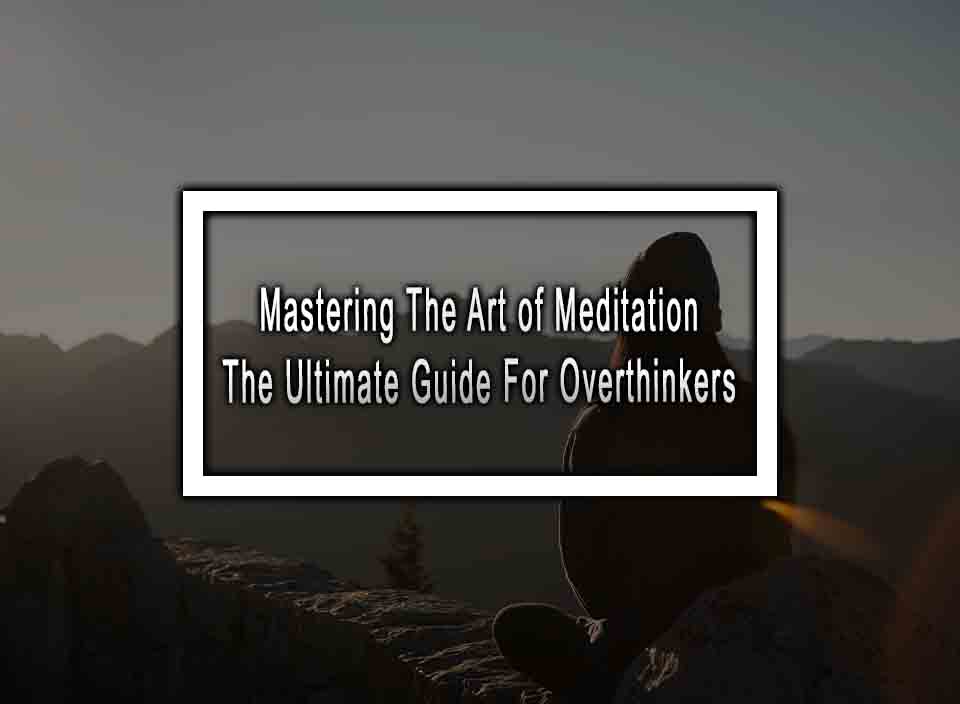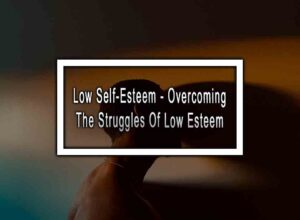Table of Contents
ToggleThe Art of Meditation: Unveiling the transformative powers of meditation for overthinkers
Do you find yourself constantly lost in a whirlwind of thoughts, worries, and internal chaos? As an overthinker, finding peace and tranquility might seem like an impossible task. However, fear not! The ancient practice of meditation holds the key to calming your overactive mind and finding serenity amid the chaos.
Meditating When You’re an Overthinker
It’s no secret that overthinking can lead to stress, anxiety, and an overall sense of unease. When our minds run rampant with a continuous stream of thoughts, it becomes difficult to focus, make decisions, and maintain a healthy state of mind. This is where meditation comes in, offering a sanctuary for overthinkers to find respite and attain mental clarity.
1. Understanding the Overthinking Mind:
Before delving into the power of meditation, it’s important to grasp the complexities of the overthinking mind. Overthinkers have a tendency to ruminate over past events, worry excessively about the future, and often criticize their own thoughts or actions. This constant mental chatter can be exhausting, which is why finding inner peace becomes imperative.
2. Unleashing the Benevolent Effects of Meditation:
Meditation is not a magic pill, but a practice that requires commitment and patience. Regular meditation sessions can profoundly impact the overthinking mind by:
- Calming the incessant mental chatter: Through techniques such as focused breathing or guided visualization, meditation helps bring your focus to the present moment, quieting the mind’s constant stream of thoughts.
- Cultivating self-awareness: By witnessing your thoughts without judgment, you will start to understand the patterns and triggers of your overthinking, gradually gaining control over your mental state.
- Reducing anxiety and stress: With regular meditation practice, you’ll begin to notice a decrease in physiological signs of stress, such as increased heart rate and shallow breathing. Meditation promotes relaxation and instills a sense of inner calm.
3. Establishing a Meditation Routine for Overthinkers:
Building a consistent meditation routine is crucial for overthinkers to reap the benefits. Here are some practical tips to get started:
- Start small: Begin with just a few minutes of meditation per day and gradually increase the duration as you become more comfortable with the practice.
- Choose a suitable environment: Find a quiet and peaceful space where you can meditate without disturbances. This could be your bedroom, a cozy corner of your home, or even a serene outdoor location.
- Experiment with different techniques: Explore various meditation styles to find the ones that resonate with you the most. Options include mindfulness, loving-kindness, or guided meditation using meditation apps and platforms.
Conclusion
For overthinkers yearning to find inner peace and gain control over their mind’s tireless chatter, meditation presents a powerful remedy. By embracing the transformative potential of this ancient practice, overthinkers can break free from the chains of overthinking, nurture their mental well-being, and discover the boundless joys of a calm and tranquil mind.
The Art of Meditation FAQ
Here are the most common questions about the art of meditation.
1. How long should I meditate?
There is no fixed duration for meditation. Beginners can start with just a few minutes of meditation per day and gradually increase the duration as they become more comfortable. Ideally, try to aim for at least 10-20 minutes of meditation every day to experience the full benefits.
2. What is the best time to meditate?
The best time to meditate depends on personal preference. Some people find it helpful to meditate early in the morning to start the day with a clear and calm mind. Others prefer to meditate in the evening to relax and unwind from the day’s stress. Experiment with different times of the day to find what works best for you.
3. Do I need any special equipment or training to meditate?
No, you do not need any special equipment or training to meditate. All you need is a quiet and comfortable space where you can sit or lie down without being disturbed. However, there are many resources available, such as guided meditation apps or classes, that can provide guidance and support if desired.
4. Is meditation a religious practice?
While meditation has roots in various religious and spiritual traditions, it can be practiced by individuals of any religious or non-religious background. Meditation is a secular practice that focuses on training the mind and cultivating inner peace, irrespective of one’s beliefs or faith.












